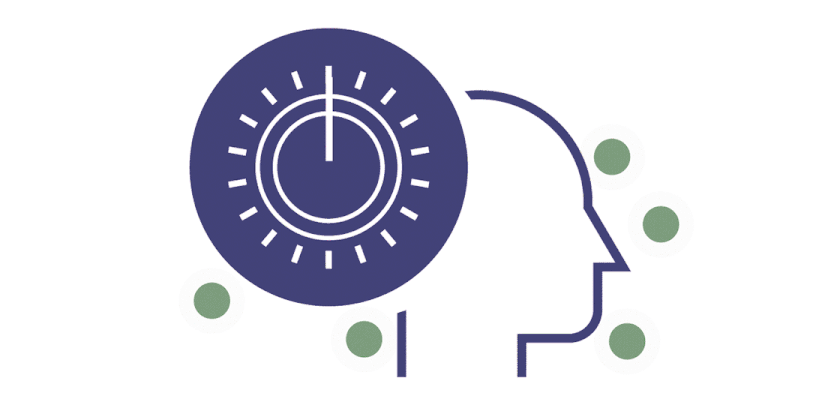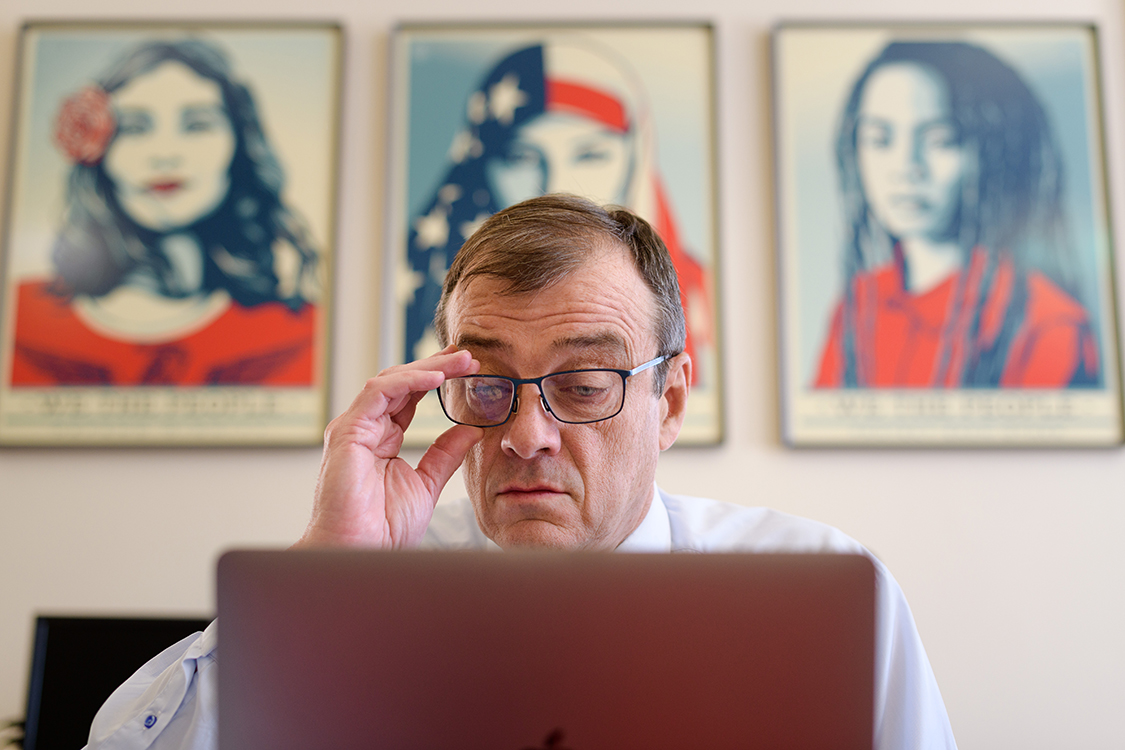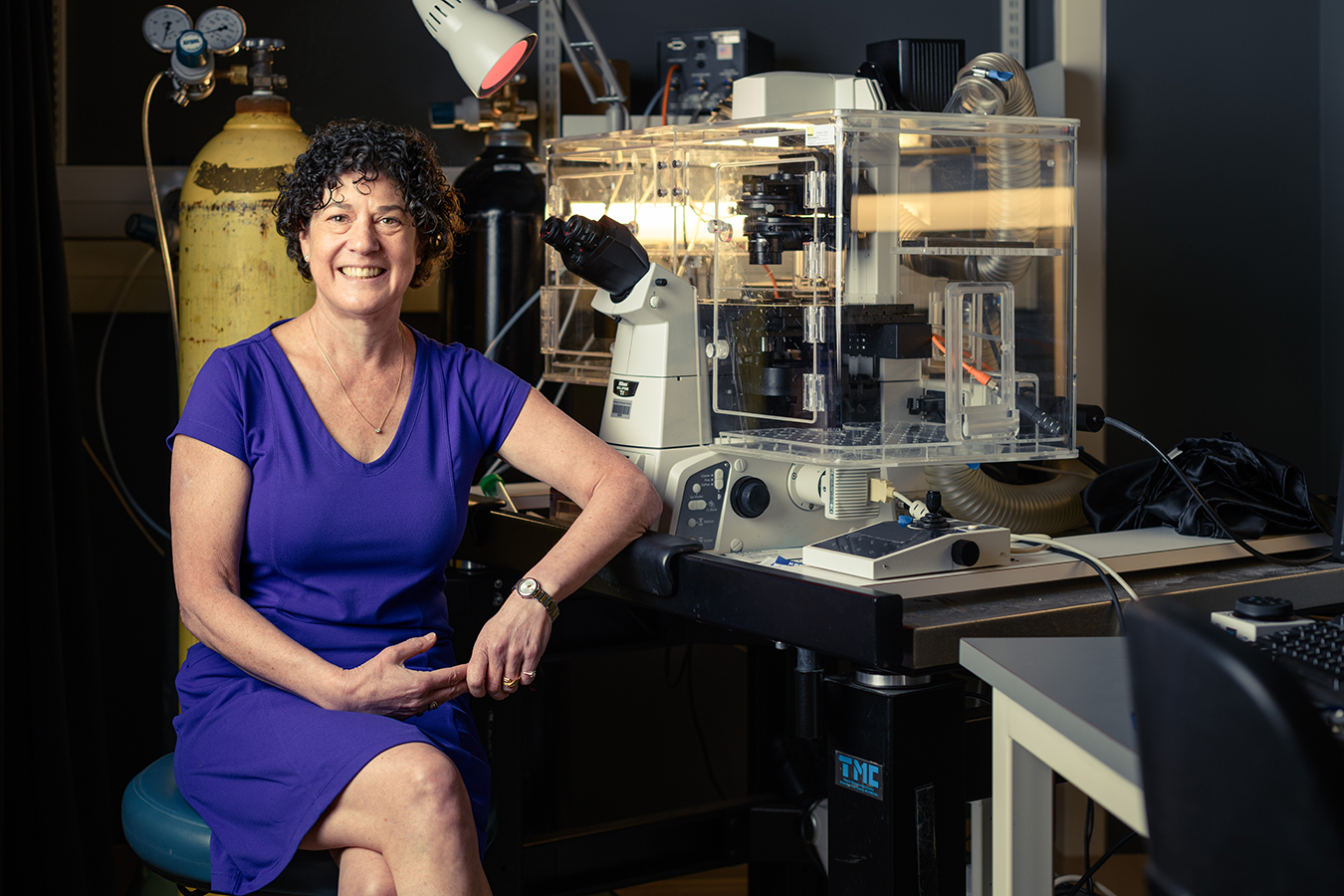Translating Research to Drive Patient Care
How novel discoveries in the lab make their way to the patient bedside
September 2022
Making Sense of the Immune System
The immune system is our first line of defense against illness and disease. A complex network of cells and proteins that defend the body against infection, the immune system is essentially a team always at work – cells, tissues and organs influencing one another and collaborating to keep us healthy in the face of the viruses and bacteria that surround us.
While the immune system provides a core function for our bodies, it requires a delicate balance to operate properly. When out of balance, overly stimulated or deregulated, the immune system itself can cause disease. When asked to provide an analogy for
the immune system, several researchers and clinicians mentioned a temperature gauge: if the dial is turned too far up and the immune system overreacts, our bodies overheat and inflammation ensues; if it is turned too far down and the immune system
fails to respond, our bodies freeze and proper responses don’t occur. The immune system can overreact and underreact in turn, creating noticeable effects in the body. Cancer and diabetes are examples of these imbalances – in cancer, the
immune system fails to attack unhealthy cells; in diabetes, healthy cells fall prey to attack. In both cases, people are vulnerable to debilitating illness.
To maintain our physical health, our immune systems must strike the right balance between over and under reacting. Because sustaining this even ground is critical, investigators are studying how to tinker with the immune systems of those with disease-related imbalances in order to bring them back into a regulated state. Immune modulation refers to a range of treatments and therapeutic approaches that seek to regulate our immune systems, restoring balance and enabling our bodies to function properly.

A Campus Ripe for Collaboration
The University of Colorado Anschutz Medical Campus, much like the immune system, is powered by a robust network of interconnection and collaboration. United by the common purpose of solving complex scientific questions, our innovative scientists and physicians are working together to advance discoveries like never before.
Internationally renowned experts at the University of Colorado Cancer Center, the Barbara Davis Center for Diabetes (BDC) and the Department of Immunology and Microbiology, among others campuswide, establish our campus as a destination for cutting-edge basic science.
John J. Reilly Jr., MD, dean of the CU School of Medicine, vice chancellor for health affairs for the CU Anschutz Medical Campus, and Richard D. Krugman, MD, School of Medicine Dean’s Endowed Chair, has a unique perspective on our many assets and a deep commitment to breaking down silos. In 2015, Reilly issued a challenge for applications to support ambitious projects that would increase collaboration across disciplines. The campuswide Human Immunology and Immunotherapy Initiative (HI3) received one of these funding awards, bringing together researchers studying the immune system.

The opportunity to work at an institution that recognizes the importance of basic science was what drew Leslie Berg, PhD, to join the team as chair of the Department of Immunology and Microbiology.
The sophistication of our immunology program here at CU Anschutz was a big factor in my decision to come to this campus. I was given the opportunity to lead at a place where basic science was prioritized in a meaningful way for translational research.”

Leslie Berg, PhD
Professor and Chair, Immunology and Microbiology Department, Director, Human Immunology and Immunotherapy InitiativeRecent recruitments build on an already strong foundation for translational research to thrive. Lori Sussel, PhD, director of the University of Colorado Diabetes Research Center, Sissel & Findlow Family Endowed Chair, leads teams investigating stem cell research that is changing the game in diabetes care. “The BDC is an internationally known Type 1 diabetes (T1D) center. I wanted to be here because the environment is amazing, and the basic, translational and clinical research programs are very strong. Upon joining the BDC research division, I saw the need to recruit scientists to study both the causes of autoimmunity and the cells that are being targeted by the immune system in T1D.”

A Place for Translational Research to Shine
No single area of expertise can create change alone. Basic science is critical to unearthing discoveries that can be used in the clinic. When findings in the clinic are communicated back to researchers, that knowledge-sharing informs what is studied at the research bench.

“This is not just a medical school and sophisticated research enterprise, but a campus with top-tier hospitals, presenting a huge opportunity for translational research. I came here to take advantage of these ripe collaborations – to work with and recruit faculty who are interested in this kind of environment where people help each other and foster each other’s careers, discoveries and translational research collaborations,” Berg notes of the vast opportunities to accelerate the pace of research.

Aimee Bernard, PhD, has been critical to driving collaborations in immunology. While the first phase of HI3 was to build infrastructure and hire key leaders, she is quick to note that phase two will be about utilizing the program that has been built to solicit critical information from patients. “We want to use each patient as an opportunity to learn about their immune system. We want to get patient samples we can study now and in the future so we can learn from everyone who walks through the door.”
Bernard and Berg called out the importance of immunology in understanding diseases such as cancer and diabetes. “All of the revolutions in cancer therapies come from basic science. They come from people studying molecules and immune cells, trying to understand what their functions are, and doing really basic experiments with the appreciation that when you figure some of these things out you wonder if this could impact or be modulated to help in another disease, such as diabetes,” says Berg.
Discoveries Across Disease Types
At CU Anschutz, one case study between William Robinson, MD, PhD, professor of medicine and Monroe and Rella Rifkin Endowed Chair in Cancer Research, and Aaron Michels, MD, associate professor of medicine and researcher at the BDC, Frieda and G.S. Eisenbarth Clinical Immunology Endowed Chair, illustrates just how critical translational research partnerships can be. Robinson has been a pioneer in the field of cancer research for decades, while Michels is a prominent diabetes researcher.
The introduction of immune therapies in cancer has provided hope – even cures – for millions of cancer patients. Yet up to 80% of these patients develop some sort of adverse effects stemming from the immune system that range from mild to fatal. “In the world of cancer, if you halt specific parts of the immune system, such as checkpoint inhibitors, the immune system can go on to target cancer cells. This has provided astounding results in terms of survival and regression of tumors in patients with advanced cancers. While people are doing great in terms of their cancer, they are developing very interesting immune-related adverse effects, one of which is type 1 diabetes,” explains Michels.
Upon witnessing these side effects in the clinic, Robinson approached Michels and colleagues at the BDC to study his biobank of samples. Remarkably, researchers at the BDC were able to investigate the genetics of these samples to determine that some individuals were predisposed to immune-related adverse effects. Once they understood whose response might include adverse events, they were able to treat those patients and watch them closely to intervene before such symptoms became severe.
Collaborations like the one between Robinson and Michels will lead to a brighter future for countless patients. Patients with cancer can receive effective treatments—without destroying their quality of life—while the ability to study diabetes before it starts offers hope for those living with T1D. This is the purpose of translational research: using science to inform how we treat patients today, while relentlessly pursuing cures for the future.
Philanthropic Support Accelerating Clinical Impact
The Patten-Davis Foundation, a philanthropic partner who has long supported research and care in both cancer and diabetes, noted the importance of studying diseases together.
"For decades we have had a passion for eradicating these diseases. Little did we know that there would come a day that therapies we supported in research funding for cancer would inform how we are screening high-risk families for diabetes.”
David S. Cohen
Trustee of The Patten-Davis FoundationCritically, Michels noted the importance of the resources his endowed chair provides for allowing him the time to do this important research. “Without the funds from the endowed chair, I wouldn’t have the flexibility to prioritize some of my most exciting research ideas. ”
Michels is grateful to those donors supporting CU Anschutz for accelerating the impact of his work. Because of the Patten-Davis Foundation and others supporting Robinson’s work, and because of his endowed chair, he can follow an idea without having to first secure funding. This flexibility ensures bright ideas move forward quickly.
Sussel echoed Michels’ gratitude. “My endowed chair has protected my time and energy to focus on high-risk, high-reward research projects, which in turn motivate junior faculty to join our team because of the exciting work happening here. ”
“We have the people and technology here at the University of Colorado Anschutz Medical Campus to make significant advancements. Philanthropy helps us secure the time we need for these important projects to make foundational basic science discoveries and work with clinicians to bring their findings from the clinic to the research bench,” noted Bernard.
CU Anschutz Fund for Excellence
To provide a flexible funding source to address CU Anschutz's most promising priorities in support of research, education and patient care.